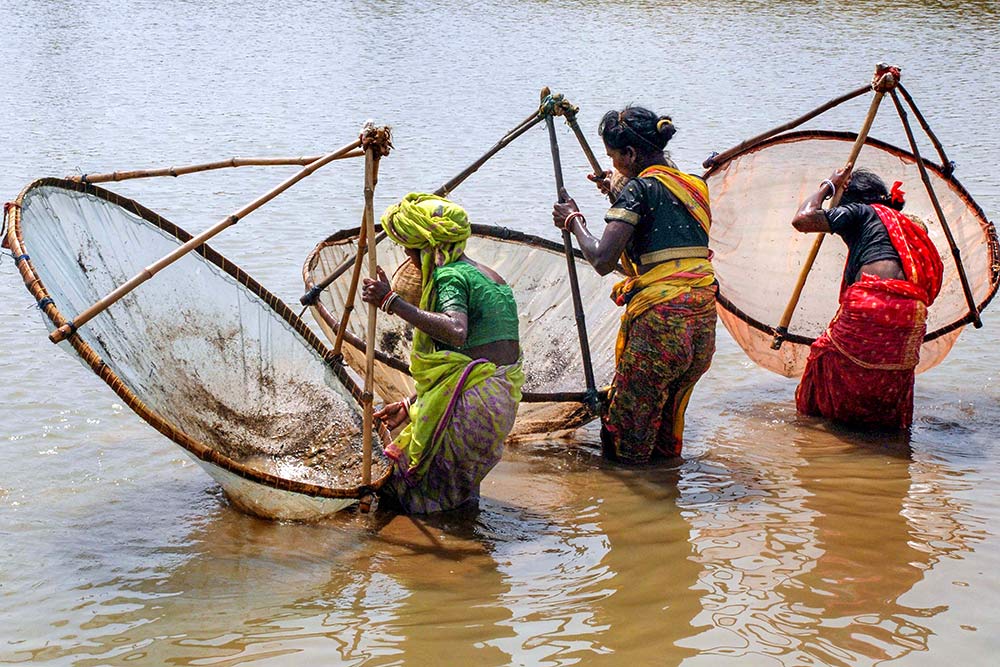Kendrapara: The coronavirus pandemic has created an unprecedented situation for the people residing in the remote corners of this district. The situation has become acute with the return of migrant workers to their homes.
In such a situation, people are mortgaging their lives and taking up dangerous jobs like fishing in crocodile-infested rivers and creeks to earn a living due to lack of any alternative means of livelihood, a report said. As a result, they often fall prey to crocodiles. The awareness programmes conducted by the forest department have gone for a toss.
These people could be seen in rivers and creeks inside Bhitarkanika National Park catching fish as soon as the tide recedes in the sea. These people catch fish and prawns from the rivers inside the park and sell them in the market.
However, what they earn in return is far less than the hard work they put in and the life risk involved in the job. A fisherwoman Seeta Maiti alleged that the fish traders gain the most from the fish catch. The fisherwomen catching fish sell prawns at Rs 70-80 per kg, while the fish traders sell the same at Rs 200-800 per kg depending on the market conditions.
Alarmingly, more women and minor girls could be seen catching fish and prawns from these water bodies than men.
According to a report by the forest department, 16 persons have died in crocodile attacks during the last 10 years. However, locals claimed the number of deaths in crocodile attacks could be more than 40 during this period. Moreover, several persons have been injured in crocodile attacks. Some of them have been discharged after recovery while a lot more are still undergoing treatment.
A woman Kalpana Mandal, 32, of seaside Talachua village said catching prawns from the water bodies inside the sanctuary is a daily affair for her as the male members of her housework outside of the state. The money sent by them is insufficient to manage a large family of hers for which she and other women in her village catch fish and prawn from the water bodies inside the sanctuary to boost their family income.
She however sounded a word of caution stating that one has to be fearless, vigilant as well as skilled while catching fish from the crocodile-infested water bodies inside the sanctuary.
Another woman Parbati Maiti said, that three types of methods are adopted while catching prawns from the rivers. May use traditional fishing nets like ‘Jhumpa’ and ‘Munduli’ while snare and fishing nets are used in some other places. A piece of chicken meat or a small fish is used as bait in a snare to catch fish and prawns, she said.
Prawn is caught in large numbers during night. Villagers get inside the rivers at night holding lanterns, torches and emergency lights to catch prawns.
Narayan Haldar, president of Odisha Fishermen Association said over 3,000 fishermen families are residing in the seaside villages and earn their living by catching fish and prawns. He lamented that at least five fishermen and women die every year in crocodile attacks but they hardly get adequate compensation from the forest department.
Debashis Bhoi, forest range officer, said there are lots of crocodiles in the water bodies inside the sanctuary. These reptiles become violent during their breeding season and end up killing humans who enter the water bodies to catch fish. The forest department is regularly conducting awareness programmes and arresting people illegally catching fish but these measures have failed to deter violators, Bhoi added.
PNN
